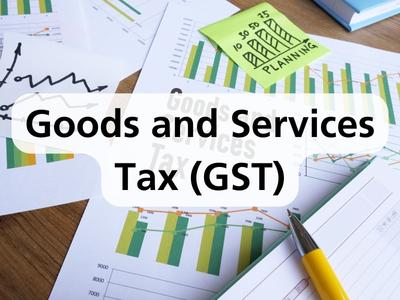Goods and Services Tax (GST) in Singapore: A Comprehensive Overview
 Goods and Services Tax (GST) in Singapore is a broad-based consumption tax with a current rate of 8%, applicable to importing goods (collected by Singapore Customs) and nearly all supplies of goods and services within the country. Often referred to as the Value-Added Tax (VAT) in other countries, GST plays a crucial role in the nation’s fiscal landscape.
Goods and Services Tax (GST) in Singapore is a broad-based consumption tax with a current rate of 8%, applicable to importing goods (collected by Singapore Customs) and nearly all supplies of goods and services within the country. Often referred to as the Value-Added Tax (VAT) in other countries, GST plays a crucial role in the nation’s fiscal landscape.
In response to economic considerations, the GST rate is set to increase from 7% to 8% on 1 January 2023 and subsequently to 9% from 1 January 2024. Businesses registered for GST must prepare for this transition, adhering to transitional rules for invoicing adjustments.
GST registration is mandatory for Singapore companies with annual taxable revenue exceeding S$1 million or with expected future revenue above this threshold. Voluntary registration is also possible, subject to IRAS Comptroller approval.
Once registered, businesses must charge GST on supplies, known as output tax, while being eligible to claim input tax on business purchases and expenses. This mechanism ensures that only the value added is taxed at each stage of the supply chain.
Types of GST in Singapore
There are four main types of supplies in Singapore, including Standard-Rated Supplies (8% GST), Zero-Rated Supplies (0% GST), Exempt Supplies, and Out-of-Scope Supplies. The time of supply rules, effective from 1 Jan 2011, dictates when output tax should be accounted for.
To claim input tax, businesses must meet specific conditions, such as being GST-registered, using goods or services for business purposes, and having valid supporting documents. Tax invoices are crucial in this process, supporting input tax claims and must be retained for at least five years.
Certain expenses are disallowed for input tax claims, including benefits to family members, costs related to privately registered motor cars, and transactions involving betting, sweepstakes, lotteries, fruit machines, or games of chance.
For those considering voluntary GST registration, completion of e-learning courses is required. Recent updates include customer accounting for prescribed goods, the introduction of GST on imported services, and the treatment of digital payment tokens as exempt supplies from 1 January 2020.


